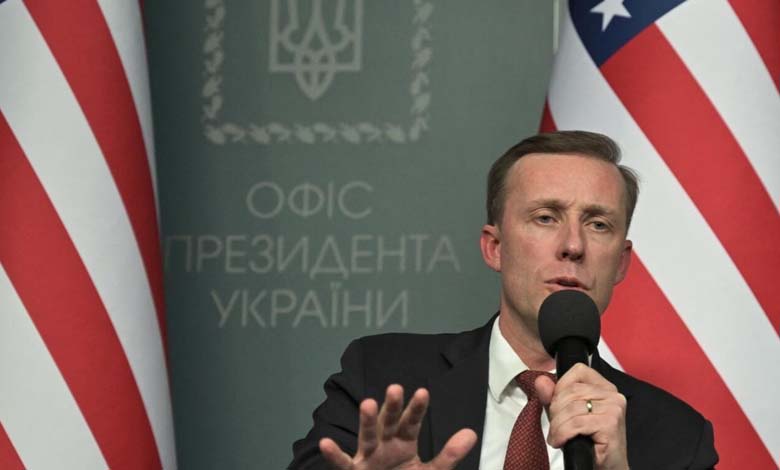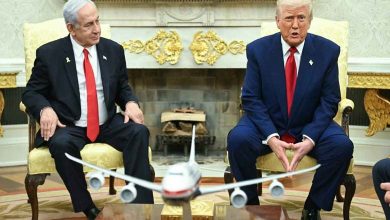Sullivan Brings Defense Deal to Saudi Arabia to Encourage Normalization with Israel
Attempts by the United States to persuade Saudi Arabia to reach an agreement with Israel are underway, amid President Biden's efforts to achieve a significant political breakthrough in the Middle East amid increasing criticism due to the Gaza war

A U.S. official confirmed that National Security Advisor Jake Sullivan will travel to Saudi Arabia this week to continue discussions with Crown Prince Mohammed bin Salman about a normalization agreement with Israel, which will include several elements, including a U.S.-Saudi military agreement to support the kingdom’s development of a civilian nuclear program. These efforts appear to be aimed at persuading Saudi Arabia to conclude the agreement as President Joe Biden seeks to achieve a significant political breakthrough in the Middle East amid increasing criticism due to the Gaza war.
The official told CNN that Sullivan will depart on Tuesday, and major breakthroughs are not expected in the meeting. This comes less than two weeks after Secretary of State Antony Blinken‘s visit to Saudi Arabia, during which he referred to “good progress” in the ongoing talks to normalize Saudi-Israeli relations.
Axios was the first to report on Sullivan‘s visit to Saudi Arabia, quoting four U.S. and Israeli officials as saying that Sullivan‘s visit “is part of the White House’s efforts to work on shaping a defense treaty between the United States and Saudi Arabia, as well as understandings related to U.S. support for a Saudi civilian nuclear program.”
The report added that U.S. officials hope to reach a “bilateral agreement” with Saudi Arabia during the visit, which will then be presented to Israeli Prime Minister Benjamin Netanyahu, indicating that the Israeli side of the agreement “includes a commitment to a path leading to a two-state solution.”
The White House declined to comment on the report, while the Saudi Embassy in Washington did not respond to the site’s request for comment on the issue.
On the other hand, an Israeli official stated, “There has been significant progress in talks between the United States and Saudi Arabia on the draft of their defense treaty. They want to finish their part of the deal before putting it on our table, and they tell us accept it or leave it.”
Talks on normalization halted following the ongoing Israeli aggression on the Gaza Strip, which resulted in the deaths of over 32,000 Palestinians, mostly women and children. However, Reuters reported that talks resumed in recent months. An American official stated that Sullivan intends to hold talks with the Crown Prince on this issue, but he does not expect a major breakthrough. Another official mentioned that Sullivan will have extensive consultations on several matters.
“He has not visited Saudi Arabia in a while, and there is much to discuss,” the official said.
U.S. Secretary of State Antony Blinken said on March 21st that the United States and Saudi Arabia have made “good progress” in talks on normalizing relations between the kingdom and the Israeli occupation, without providing a timeline for reaching an agreement.
Reuters also reported that Saudi Arabia, as part of the normalization agreement, wants to conclude a joint defense agreement with Washington and obtain U.S. support for its civilian nuclear program. Biden stated during a fundraising event for his election campaign in New York last week that the Saudis are “ready to fully recognize Israel,” adding, “But there must be a plan for Gaza, and there must be a path to a two-state solution. That should not happen today.”
Saudi Arabia does not recognize Israel and has not joined the Abraham Accords, under which the UAE, Bahrain, and Morocco normalized their relations with Israel.
Saudi Arabia has several conditions for normalization, including obtaining security guarantees from Washington and assistance in developing a civilian nuclear program. It has also reiterated its demand for the establishment of a Palestinian state, a matter it reaffirmed after the war in the Gaza Strip.
Netanyahu, for his part, has repeatedly rejected the establishment of a Palestinian state, despite U.S. and international calls for the implementation of a two-state solution.












